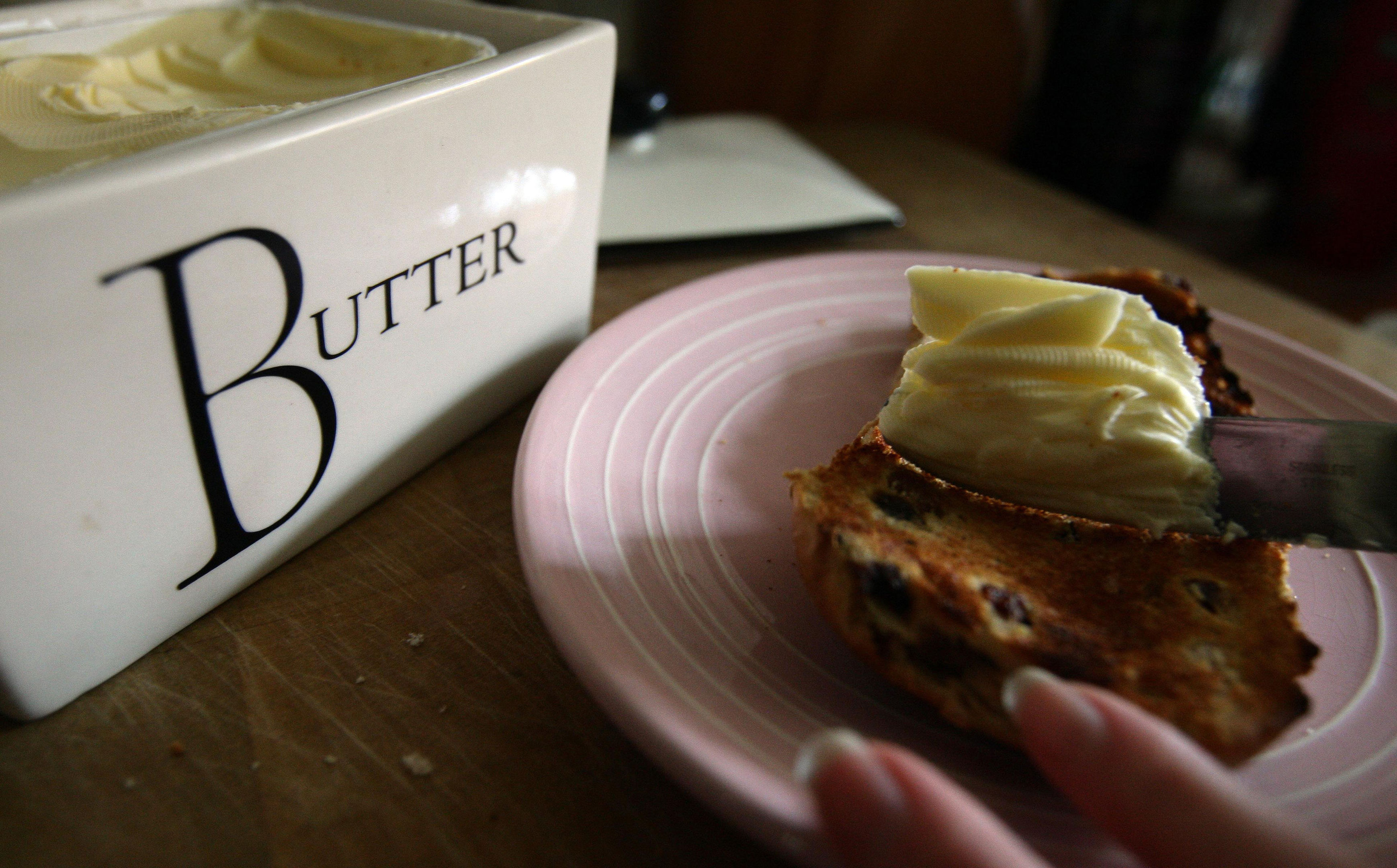
While people may experience lowered cholesterol levels, this does not translate to improved survival or lower risk of heart disease, experts said.
In fact, people with the greatest reduction in blood cholesterol appear to have a higher, rather than lower, risk of death.
The US team, including researchers from the prestigious National Institutes of Health in Maryland, said the findings suggest there has been an “over-estimation of the benefits of replacing saturated fat with vegetable oils” that are rich in linoleic acid (a type of omega 6 polunsaturated fat).
Omega 6 polyunsaturated fat has long been regarded as key to helping lower the risk of heart disease and is found in a range of cooking oils such as corn, sunflower, grape seed, rapeseed, poppyseed, corn and sesame oils, as well as nuts and seeds.
It is also found in some spreads, such as Flora, made by Unilever.
Across the world, health experts urge people to replace saturated fats with small amounts of other, more healthy fats, including oils rich in linoleic acid.
In the US, the American Heart Association recommends that at least 5% to 10% of food calories come from omega 6 fatty acids.
In the new study, experts analysed several trials, including the Minnesota Coronary Experiment (MCE), which followed 9,423 participants from state mental hospitals and a nursing home.
During the trial, one group of people replaced their saturated fat intake with linoleic acid from corn oil and corn oil polyunsaturated margarine.
This compared with the control group, where people had diets high in saturated fat, including butter and common margarines.
The team found that while those on corn oil had a “significant reduction” in cholesterol levels, they experienced a higher rate of death.
There was also “no evidence of benefit” in terms of heart disease or risk of heart attack.
Previously, the same team has examined unpublished data from a similar trial – the Sydney Diet Heart Study – and also found that the risk of death from heart disease was higher in those who replaced saturated fat with vegetable oil rich in linoleic acid.
They have now reviewed and analysed the results of all similar trials and failed to find any reduction in death from heart disease or other causes.
Writing in the British Medical Journal (BMJ), they concluded: “Available evidence from randomised controlled trials shows that replacement of saturated fat in the diet with linoleic acid effectively lowers serum cholesterol but does not support the hypothesis that this translates to a lower risk of death from coronary heart disease or all causes.”
In an editorial, Lennert Veerman, senior lecturer at the University of Queensland, said: “The benefits of choosing polyunsaturated fat over saturated fat seem a little less certain than we thought.”
Jeremy Pearson, associate medical director at the British Heart Foundation (BHF), said: “We know that having too much cholesterol in your blood can increase your risk of cardiovascular disease, including heart attack and stroke, which is why managing our cholesterol level is crucial.
“This is an interesting study which shows that decreasing your intake of saturated fat can have a positive impact in helping lower cholesterol.
“However, more research and longer studies are needed to assess whether or not eating less saturated fat can reduce your risk of cardiovascular death.”
Caroline Jary, director of spreads at Unilever, which makes Flora, said: “Overwhelming evidence gathered over the past five decades confirms that reducing intake of animal fats such as from bacon and butter, and replacing them with oils and fats from plants, like those found in our spreads, contribute significantly to heart health.
“Influential bodies including Public Health England, Heart UK and the British Heart Foundation all agree that eating too much saturated fat can raise cholesterol levels, which increases the risk of heart disease.
“There is good evidence that swapping to unsaturated fat helps to reduce cholesterol in the blood.
“Unilever follows health recommendations from all over the world advocating to reduce the intake of saturated fats and replace them with monounsaturated and polyunsaturated fats, including both omega 3 and omega 6, more commonly known as good fats.”
READ MORE
Quick-thinking nurse saved singer having a heart attack on stage

Enjoy the convenience of having The Sunday Post delivered as a digital ePaper straight to your smartphone, tablet or computer.
Subscribe for only £5.49 a month and enjoy all the benefits of the printed paper as a digital replica.
Subscribe